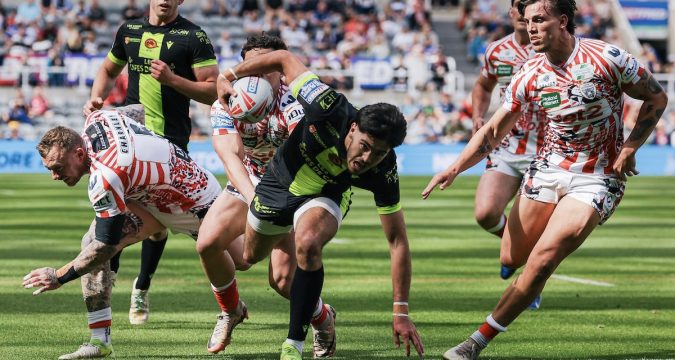 IT WAS good to see the Magic Weekend back in Newcastle, which in my view should become its permanent home.
And it was good to see the record Sunday afternoon crowd of 32,862, although that didn't lead to a record crowd for both days overall. The crowd that the Magic Weekend seems able to attract at Newcastle seems stubbornly stuck in the low 60
IT WAS good to see the Magic Weekend back in Newcastle, which in my view should become its permanent home.
And it was good to see the record Sunday afternoon crowd of 32,862, although that didn't lead to a record crowd for both days overall. The crowd that the Magic Weekend seems able to attract at Newcastle seems stubbornly stuck in the low 60 Talking Rugby League: Magic Weekend reflections as young talents shine
 IT WAS good to see the Magic Weekend back in Newcastle, which in my view should become its permanent home.
And it was good to see the record Sunday afternoon crowd of 32,862, although that didn't lead to a record crowd for both days overall. The crowd that the Magic Weekend seems able to attract at Newcastle seems stubbornly stuck in the low 60
IT WAS good to see the Magic Weekend back in Newcastle, which in my view should become its permanent home.
And it was good to see the record Sunday afternoon crowd of 32,862, although that didn't lead to a record crowd for both days overall. The crowd that the Magic Weekend seems able to attract at Newcastle seems stubbornly stuck in the low 60 